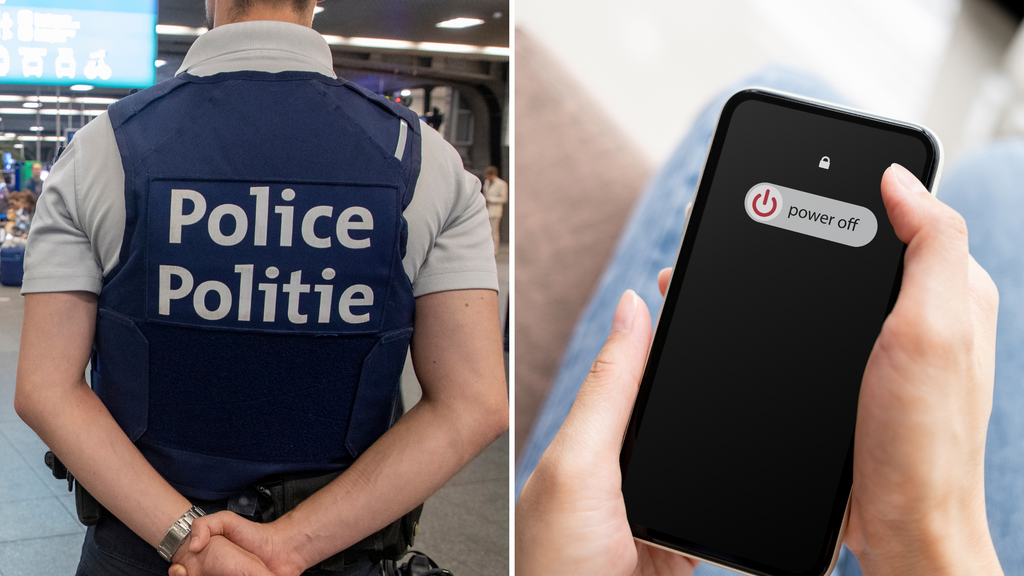The Belgian Federal Police issued a communication on Thursday advising people to turn off their phones at least once daily to lower the risk of potential mobile intrusions like viruses and hijacking software.
"If, for example, malware has managed to install itself and is busy collecting your personal data, this restart will disrupt it," Commissioner Olivier Bogaert wrote. "After the reboot, the hackers will have to start all over again to succeed in their intrusion attempt." And they won't be able to activate the malware until the infected application is opened again.
"Have you turned it off and on again?" is standard advice when users run into glitches, slowness or battery problems. Still, Bogaert insists that regularly restarting phones and closing applications (as opposed to simply exiting them) is an easy way to lower the risk of malware. Phone users should also consider installing anti-virus software.
Cybercrime on the rise
The warning comes within the context of the 2022-2025 federal police security plan, specifically the section on pirating, informational sabotage, informational fraud and internet scams.
The widespread habitual use of the new technologies and the internet (84% of Belgians own a smartphone, and 97% of 15 to 24-year-olds use the internet daily, according to the 2022 report) increasingly exposes Belgians to cybercrime on all internet devices.
Individuals' increased reliance on digital tools during the Covid-19 pandemic for remote learning and teleworking was also rapidly followed by an increase in recorded cybercrimes in Belgium, reaching 43,501 in 2020 and marking a general rise in the number of flagged incidents from the spring of 2020 onwards.
Related News
- Hackers steal the mobile phone numbers of 2,800 Swiss police officers
- €4,500 in bitcoin to spare your life: Over 300 reports about 'hitman' spam email
- All businesses should use two-step logins, says Cybersecurity Centre
Yet, even with pre-pandemic data from the 2018 Safety Monitor, the report estimates that nearly 110,000 Belgians a year are victims of hacking – that's one person every three minutes, and only counts reported incidents.
In fact, cybercrimes and attempts are typically under-reported. The Safety Monitor presented that only 12.5% of fraud victims surveyed filed a complaint. Considering unreported incidents, the estimate of cyberattacks and attempted cyber attacks on Belgian citizens rises to almost 140,000 annually.
Belgium is especially vulnerable
Belgium is a particularly interesting target for cybercriminals not just for financial reasons but also because of the presence of important institutions such as NATO headquarters and European Parliament venues, which exposes Belgium to greater risk of cyber attacks than other countries.
In fact, at the time of the report, the Belgian National Crisis Centre estimated a very high probability of a large-scale cyber attack in Belgium within the following five years.
Since then, there have indeed been many attacks, including one against the Ministry of Foreign Affairs in June 2022, an attack on CHU Saint-Pierre hospital in Brussels in March and an attack against the Federal Government in June. A 2022 report by the cybersecurity company Surfshark ranked Brussels fourth globally for cybercrime density.

